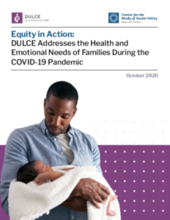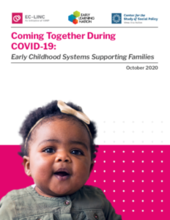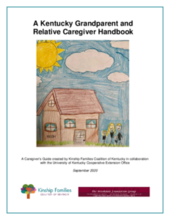Displaying 41 - 50 of 437
This brief summarizes the response and value of the Developmental Understanding and Legal Collaboration for Everyone (DULCE) approach during the first four months of the COVID-19 pandemic, the essential elements of the model that support its strength, and lessons learned.
This brief discusses how the infrastructure and partnerships EC-LINC communities have developed over years of building their early childhood systems have allowed them to address the needs confronting families with young children during the COVID-19 pandemic.
The current study builds on previous experimental evaluations of the My Life Model (MLM) for self-determination enhancement, which demonstrated effectiveness in improving educational and transition-to-adulthood outcomes for youth in foster care with disabilities, including those with mental health challenges.
this study relied on organizational survey data collected from child welfare workers and supervisors during the process of implementing an evidence-based practice—the Positive Parenting Program—and merged those data with data gathered by the Parents' Assessment of Protective Factors survey.
This paper describes the upEND movement, a collaborative movement aimed at abolishing the child welfare system as we know it and reimagining how we as a society support child, family, and community safety and well-being.
The objective of this paper is to report on the development and implementation strategy of a tool to be used for practice intervention during the pandemic.
This handbook is meant as a reference guide to enlighten grandparents and relative caregivers on resources and information that may be available to them and their family.
This study explored if domains of the Child and Adolescent Needs and Strengths assessment were associated with a prescribed trauma-focused treatment.
The purpose of this project was to determine if there were differences in learning outcomes between learners who completed child protection training in the usual delivery methods (Pre-COVID) and the fully virtual delivery methods (Post-COVID).
The Fathers Offering Children Unfailing Support (FOCUS) program serves fathers referred by Child Protective Services and the Attorney General’s Office. The goal of the authors of this paper was to investigate changes in fathers’ report of parenting involvement and fathers’ instrumental support through child support payments through two separate studies of community samples.



